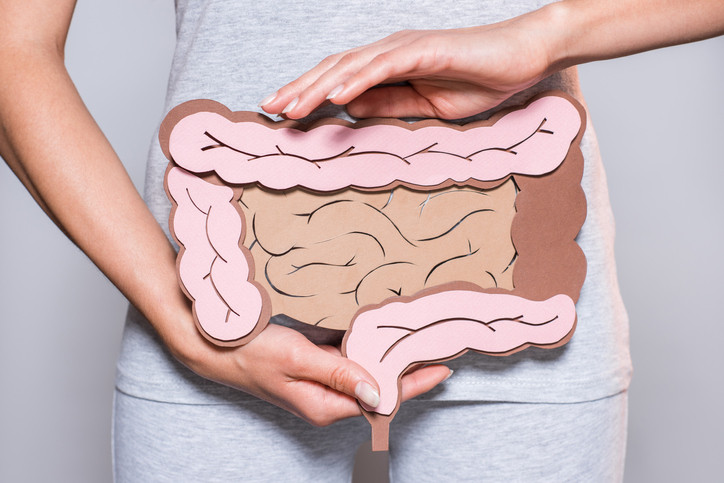
Counting steps is good — is combining steps and heart rate better?

Appendix pain: Could it be appendicitis?

Can saw palmetto treat an enlarged prostate?

How does Ozempic work? Understanding GLP-1s for diabetes, weight loss, and beyond

Zinc: What it does for the body, and the best food sources

Respiratory health harms often follow flooding: Taking these steps can help

Tips to leverage neuroplasticity to maintain cognitive fitness as you age

Can white noise really help you sleep better?

Celiac disease: Exploring four myths

What is prostatitis and how is it treated?
Nutrition Archive
Articles
Problems with bloating? Watch your sodium intake
In the journals
If you suffer from regular bloating after eating, you may want to check your sodium intake, suggests a study published in July 2019 in The American Journal of Gastroenterology.
Scientists analyzed data from the Dietary Approaches to Stop Hypertension–Sodium trial (DASH-Sodium) from two decades ago. The original study compared the DASH diet — a high-fiber diet low in fat and high in fruits, nuts, and vegetables — against a low-fiber control diet. The study also looked at sodium intake as the participants consumed both high- and low-sodium versions of their diets. The study primarily focused on how dietary sodium affected blood pressure.
Cutting 300 daily calories improves several health markers
In the journals
Reducing your daily calorie intake by about 300 can improve the numbers for several health markers, according to a study published online July 11, 2019, by The Lancet Diabetes & Endocrinology.
Researchers recruited 218 adults with a body mass index of 22 to 27.9, which is in the range of normal weight and slightly overweight. For a month, half the participants ate three meals a day that reflected about a 25% reduction in their normal daily calorie intake. They also engaged in six months of group and individual counseling sessions. People in the other group continued their usual diet.
The trouble with excess salt
Sodium doesn't affect everyone equally, but there's good reason to stick to moderate amounts in your diet.
On average, Americans eat too much salt — more than a teaspoon and a half a day. Most often it doesn't come out of a shaker, but is hidden in the foods you eat. But is it really bad for your heart to eat too much, or is that just a concern for people with certain risk factors? There's been some debate on this topic, even among members of the scientific community. We asked Nancy Cook, a professor of medicine at Harvard Medical School, for her thoughts on salt — or more precisely, sodium, a mineral that makes up 40% of salt — and how it affects your health and your heart.
Is salt really bad for your heart?
"There is a fairly undisputed effect of sodium on blood pressure," says Cook. The effect is stronger in people with high blood pressure (hypertension), a sustained blood pressure reading of 120/80 or higher. The data for an effect on cardiovascular disease are somewhat more controversial, she says, but in general, the bulk of research does seem to link lower sodium intake with both lower blood pressure and a lower risk of cardiovascular disease.
Don't give up on grains
Whole grains contain fiber and nutrients that can help your health.
It's a low-carb world, and many people are pushing grains off their plate in an effort to control their waistline. But they may be doing their body a disservice. Whole grains have some unique properties that make them a valuable addition to the diet. Not only do they contain a host of nutrients, such as iron, B vitamins, copper, zinc, and magnesium, but studies have linked diets rich in whole grains to a lower risk of colon cancer, which is a growing health threat for many younger Americans.
"The main benefit of whole cereal grains, such as wheat, oats, and barley, is in the fiber," says Teresa Fung, adjunct professor in the Department of Nutrition at the Harvard T.H. Chan School of Public Health. "Cereal fiber is different from vegetable fiber or bean fiber."
Is your lunch lacking?
Research we're watching
If the contents of your lunch bag are looking less than wholesome, you're not alone. A survey sponsored by the American Heart Association found that more than half of Americans who eat lunch at work reported that their midday meal often falls short when it comes to good nutrition. In addition, 91% of those surveyed said they would be interested in making healthier lunch choices. So, what's making people choose less healthful lunch options? Top reasons included the convenience of unhealthy foods (cited by 60% of respondents), taste (54%), and a lack of healthy food options (cited by 43%). If you're looking to improve your own lunch quality, the American Heart Association offers some tips on its website at www.heart.org/healthyforlife.
Image: portishead1/Getty Images
Feeling gassy — is it ever a cause for concern?
Intestinal gas can be embarrassing, but is a normal part of digestion. Only rarely is excess gas cause for concern. Which foods you eat –– and how you digest them –– can make a difference.
Avoiding nuts and seeds for better gut health? You shouldn’t
Nuts and seeds are rich in fiber, which is important for gut health and keeping you regular. And, contrary to a common concern, no evidence links eating nuts and seeds to a painful gut infection called diverticulitis.
Harvard researchers: Red meat consumption tied to early death
News briefs
We already know that a diet rich in red meat is linked to many health problems, such as heart disease, type 2 diabetes, and colorectal cancer. Now a Harvard-led study published online June 12, 2019, by BMJ suggests that boosting your red meat intake increases your risk for early death. Scientists analyzed questionnaire answers about health and diet provided by more than 81,000 healthy men and women between 1986 and 2010. In particular, researchers looked at whether changes in red meat consumption during an eight-year period of the study affected the risk of death eight years later. The findings: An increase of just half a serving of processed red meat per day was associated with a 13% higher risk for dying young from any cause; an additional half-serving of unprocessed red meat increased the risk by 9%. On the flip side, decreasing total red meat consumption and increasing the consumption of nuts, fish, poultry without skin, dairy, eggs, whole grains, or vegetables was tied to a lower risk of death. The takeaway: Try to curb your appetite for red and processed meats like bacon, salami, and hot dogs. Eat more poultry, fish, or plant-based proteins (like beans, lentils, nuts, and seeds), along with the other components of a healthy diet.
Image: © Pavlo_K/Getty Images
Can these three steps save 100 million lives?
News briefs
A study published online June 10, 2019, by Circulation suggests that scaling up three healthy lifestyle changes could increase the life spans of almost 100 million people around the world. Researchers — led by a team from the Harvard T.H. Chan School of Public Health — evaluated global data on death rates, blood pressure levels, the use of blood pressure medications, sodium and trans fat intake, country, age, and gender. They estimated that a worldwide push to lower blood pressure, reduce salt intake by 30%, and eliminate the consumption of trans fat could delay more than 94 million deaths from cardiovascular disease in the next 25 years. More than half of those deaths would be among adults ages 70 or older, and more than half of all deaths would be among men. Regions that would see the most benefit are outside the United States — in East Asia, South Asia, the Pacific, and parts of Africa. But we can all benefit from the three lifestyle changes. Trans fat has already been banned in foods in the United States. But if your blood pressure isn't under control, it's time to talk to your doctor about treatment and to reduce sodium intake to well under 2 grams per day.
Image: © CatLane/Getty Images
The best beverages for your heart
Sweet drinks go down easy, but they may be hard on your heart. Aside from plain water, the healthiest choices are unsweetened tea, coffee, and flavored waters.
When you want to quench your thirst with something a little more exciting than plain old water, there are a dizzying array of choices these days. However, many of the beverages in supermarkets and convenience store aisles are loaded with added sugar. Even many of those that sound healthy (such as 100% fruit juice and vitamin-enhanced water) contain as much sugar as regular sodas.
Yes, the sugar in fruit juice is naturally occurring, as opposed to the processed sugar (usually high-fructose corn syrup) found in many carbonated and noncarbonated drinks such as sodas, vitamin water, and the like. But people should still be mindful about consuming too much fruit juice, says Vasanti Malik, a nutrition researcher at the Harvard T.H. Chan School of Public Health.

Counting steps is good — is combining steps and heart rate better?

Appendix pain: Could it be appendicitis?

Can saw palmetto treat an enlarged prostate?

How does Ozempic work? Understanding GLP-1s for diabetes, weight loss, and beyond

Zinc: What it does for the body, and the best food sources

Respiratory health harms often follow flooding: Taking these steps can help

Tips to leverage neuroplasticity to maintain cognitive fitness as you age

Can white noise really help you sleep better?

Celiac disease: Exploring four myths

What is prostatitis and how is it treated?
Free Healthbeat Signup
Get the latest in health news delivered to your inbox!
Sign Up










